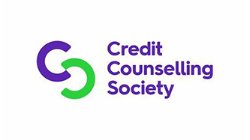Comprehensive Overview to Effective Credit Score Therapy Methods for Sustainable Financial Health
Browsing the intricacies of individual money can be a complicated task for several individuals looking for to attain lasting economic wellness. The world of credit rating therapy stands as a sign of advice in this elaborate landscape, supplying customized strategies to empower individuals towards much better monetary outcomes. From comprehending credit report to mastering debt administration strategies, a thorough method is vital. Join us as we unwind the layers of reliable credit report therapy strategies created to lead the way for a much more stable and prosperous monetary future.
Understanding Credit History
Comprehending the significance of credit rating ratings is necessary for taking care of personal funds properly. A credit history is a mathematical depiction of an individual's credit reliability, suggesting to loan providers the level of risk related to prolonging debt to that person. It is a crucial element that influences the rate of interest rates supplied on fundings, credit card authorizations, and also rental applications.

Keeping track of one's credit rating regularly can help identify discrepancies or illegal tasks that can negatively affect their monetary well-being. By recognizing credit rating and the actions that influence them, individuals can make educated financial choices, construct a favorable credit rating, and work towards attaining their long-term economic objectives.
Budgeting and Expenditure Monitoring
Developing a thorough budgeting plan and carefully tracking expenditures are fundamental practices for individuals making every effort to obtain economic stability and control over their cashes. A budget plan functions as a roadmap, describing revenue sources, dealt with costs like lease or car loan settlements, variable expenses such as groceries and home entertainment, and savings objectives. By developing a budget plan, individuals obtain a clear understanding of their financial standing and can make enlightened decisions on investing and conserving behaviors.
Expense monitoring matches budgeting by providing a thorough account of where money is being spent. This procedure includes taping all expenditures, whether big or small, to determine areas where investing can be maximized or minimized. Using devices like budgeting applications or spreadsheets can streamline cost monitoring and offer understandings into investing patterns gradually.
Via consistent budgeting and expense monitoring, individuals can proactively manage their finances, avoid overspending, and work in the direction of achieving their monetary goals. These methods promote liability and encourage individuals to make strategic economic choices that line up with their long-term goals.
Financial Debt Administration and Loan Consolidation
Having actually developed a solid structure through budgeting and cost monitoring, the following crucial step in the direction of accomplishing monetary wellness involves reliable financial debt administration and debt consolidation approaches. Financial obligation management is the procedure of creating a structured strategy to pay back financial debts in a timely fashion, while debt combination involves integrating numerous financial obligations into a single repayment, commonly with a lower interest price.
One trick approach in financial obligation administration is prioritizing debts based on interest prices and quantities owed. By paying off high-interest financial debts initially, individuals can reduce the overall interest paid with time. Furthermore, discussing with financial institutions for lower rate of interest or establishing a convenient payment plan can help individuals remain on track with their financial debt repayment.
Financial obligation consolidation can streamline the payment process by incorporating multiple financial debts right see this page into a single month-to-month repayment. By carrying out effective financial debt monitoring and consolidation strategies, individuals can work towards lowering their financial debt problem and attaining better economic stability.

Credit Score Structure Methods
In addition, keeping credit scores utilization read this reduced, ideally below 30% of the overall credit score restriction, demonstrates liable credit management. Consistently checking credit history records for errors and inaccuracies is additionally crucial, as correcting these problems can avoid negative effects on credit rating scores. Another technique is to come to be a certified customer on somebody else's credit rating account, benefiting from their positive credit background.
Financial Education And Learning and Planning
To additionally strengthen their economic foundation, individuals can improve their credit-building development by getting extensive financial education and developing a critical preparation structure. Financial education and learning plays an essential function in empowering individuals to make enlightened decisions regarding their money management. By recognizing essential monetary ideas such as budgeting, conserving, spending, and financial debt monitoring, individuals can navigate the intricacies of personal financing better.
Additionally, strategic financial planning is crucial for establishing and achieving long-lasting monetary objectives. Producing a comprehensive financial strategy that outlines income resources, expenditures, financial savings targets, and investment approaches can assist individuals remain organized and concentrated on their financial purposes. On a regular basis examining and Resources readjusting this strategy in reaction to changes in revenue, expenditures, or monetary objectives is additionally vital to ensure its performance.
Conclusion
In final thought, effective credit history therapy approaches are important for attaining sustainable economic wellness. By understanding credit rating ratings, budgeting, handling financial debt, building credit history, and monetary education and learning, people can improve their economic health and wellness and make notified choices.

Additionally, keeping credit report use reduced, preferably below 30% of the complete credit history limitation, demonstrates accountable credit report management. By understanding credit report ratings, budgeting, taking care of debt, constructing credit rating, and monetary education, people can boost their financial health and make informed choices.